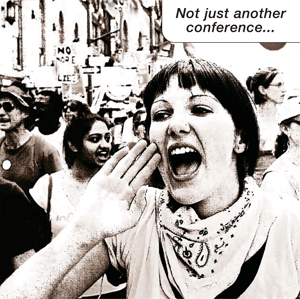“The Worst Places to be a Woman”: un slideshow in revista Foreign Policy (intr-un “Sex Issue”) cu harti despre citiva indici privind drepturile femeilor in lume:
- – Discrepanta in educatie
- – Inegalitate in legi/practici legate de familie
- – Participarea femeilor la guvernare
- – Casatoria timpurie pentru femei: legi si practici
- – Mortalitate maternala
- – Siguranta fizica a femeilor
- – Poliginie
- – Preferinta pentru fii si raportul femei-barbati
Este interesant de vazut ca Romania se plaseaza printre ultimile in mai multe din aceste categorii.
Dar pe langa concluzii despre care locuri sint cele mai dezavantajoase pentru femei, o analiza excelenta care trebuie citita si luata in considerare despre discursul si demersul acestui “Mapping the places where the war on women is still being fought” si axarii pe Orientul Mijlociu – cu o referinta foarte utila la situatia post-’89 din Europa de Est:
[…] It is commendable that Foreign Policy highlights the all too common silence about sex and gender politics in its own pages. Hopefully, this is the beginning of a serious and continued engagement, rather than a one off matter. Despite the editors’ good intentions, however, Foreign Policy disturbingly reproduces much of the dominant and sensationalist discourse about sex in the Middle East. The “Sex Issue” leaves much to be desired.
To begin with, it is purportedly about how sex shapes the world’s politics. But with the exception of one article that urges US foreign policy makers to understand women as a foreign policy issue and a target of their “smart-power arsenal,” its focus is almost exclusively on Iran, the Arab world, and China. Thus “the world” is reduced for the most part to Arabs, Iranians, and Chinese—not a coincidental conglomeration of the “enemy.” The current war on women in the United States is erased.
[…]
Many writers and activists have called El Tahawy to account for erasing women’s histories. For Arabs, like all peoples, have histories that one must engage, as Lila Abu-Lughod reminds us, in order to understand the “forms of lives we find around the world.” Critics have pointed to the long history of the Egyptian women’s movement and that formative moment in 1923 when Huda Sha‘rawi took off her face veil at the Ramses train station. This is a useful point to revisit, if only to reflect on why the liberalism that Sha‘rawi and her cohorts fought for—men and women—drastically and resoundingly failed. One reason, and there are many, was that liberalism resonated with only a small elite. As Hanan Kholoussy points out, women under domestic confinement who like Sha‘rawi were expected to don the face veil made up only two percent of Egypt’s five million females at the end of the nineteenth century.
One would have to also critically and historically engage how women’s movements have been implicated in the policies and longevity of authoritarianism. After all, the two countries where women enjoyed the broadest scope of personal status law were Tunisia and Egypt, before the recent revolutions. Indeed, of all the countries of the Arab world, it was only in Tunisia and Egypt that a woman could pass her citizenship on to her children if she was married to a foreigner. (In Egypt there was a small qualification for women married to that other other, the Palestinian; post-revolutionary Egypt has, at least in law if not in practice, done away with this exception).
How can we account for these legal achievements under authoritarian regimes? We could turn to the source of El Tahawy’s inspiration: Fareed Zakaria’s “Why They Hate Us: The Politics of Rage.” There, Zakaria’s muddled logic counsels: “we have to help moderate Arab states, but on the condition that they embrace moderation.” As Mahmood Mamdani and Lila Abu-Lughod often write, moderate Islam has often been produced on the wings of women’s and minority rights.
We can also look to the experiences of feminists and women’s activists. Rema Hammami and Eileen Kuttab have shown that in the Palestinian context, the women’s movement lacked a coherent strategy linking gender equality to democracy. The women’s movement thus appeared to be sponsored by the Palestinian Authority; its fate became dependent on that of the political system. In 1999, Hammami and Kuttab warned:
Examples are myriad—eastern Europe and the former Soviet Union saw massive attacks on women’s rights issues after the fall of communist regimes because they came to be associated with other undemocratic and unpopular regime policies. Turkey, Algeria, Egypt are situations where you have small women’s movements whose popular legitimacy is lost because over time they have been seen as linked to or sponsored by authoritarian secular regimes.
Is it liberalism then that will fight off the misogyny of authoritarianism? Is the much-feared Islamist summer the real enemy here? And if so, how do we explain that it is women just as much as men, as Shadi Hamid has noted, who have gone to the ballot box and voted Islamists into power?
[…]
The battle against misogyny does not follow a “men hate women” formula. It cannot be reduced to a generic battle of the sexes spiced with a dose of Islam and culture. It cannot be extracted from the political and economic threads that, together with patriarchy, produce the uneven terrain that men and women together navigate. It is these lessons that one would have to engage before meting out an indictment about the politics of sex, much less envisioning a future of these politics. There is no one answer because there is no single culprit, no single “culture” or “hatred” that we can root out and replace with “tolerance” or “love.” Similarly, the absence of a sustained and critical attention to sex and gender cannot be solved, syllabus style, by a separate glossy special “Sex Issue,” the content and form of which reproduce what it purports to critique.


